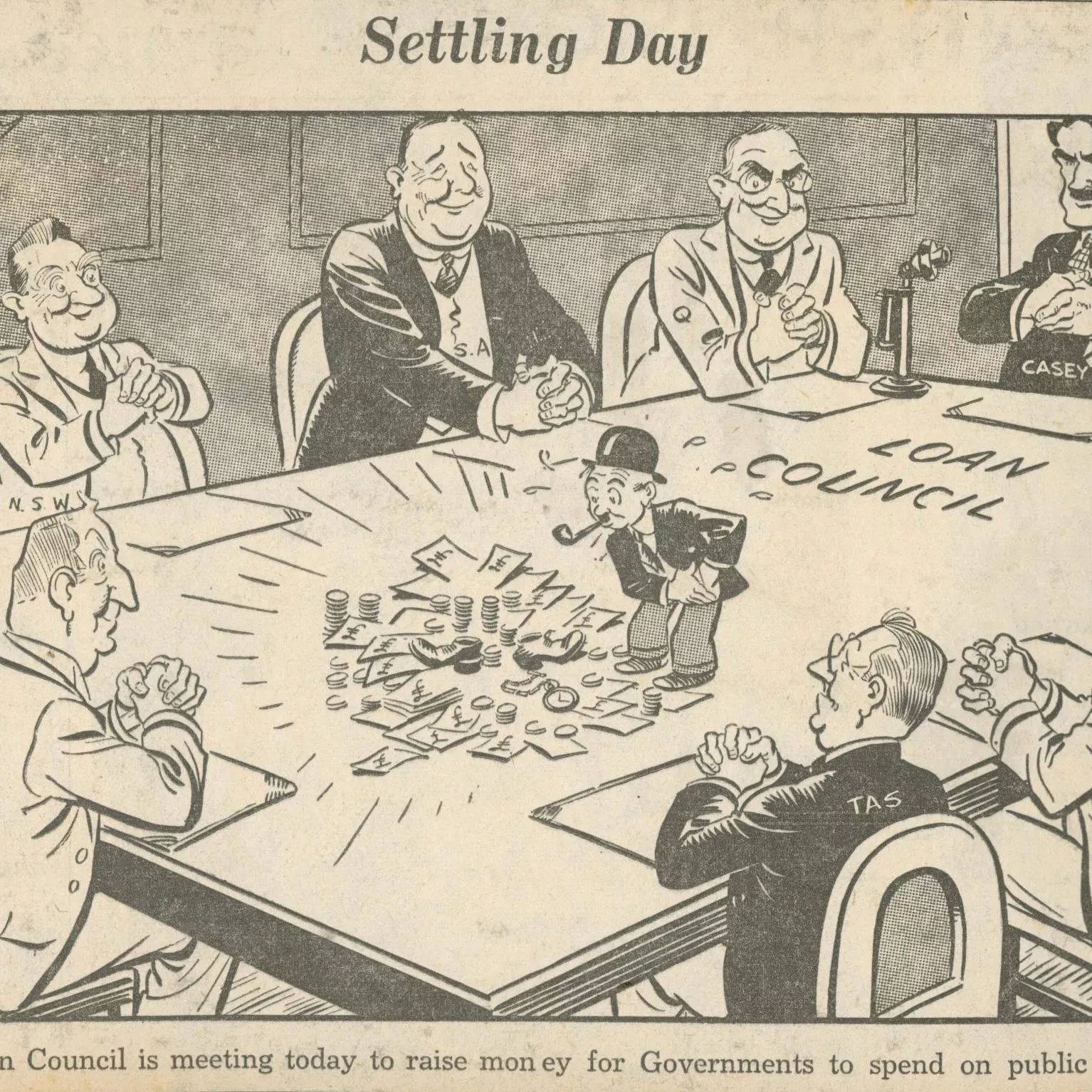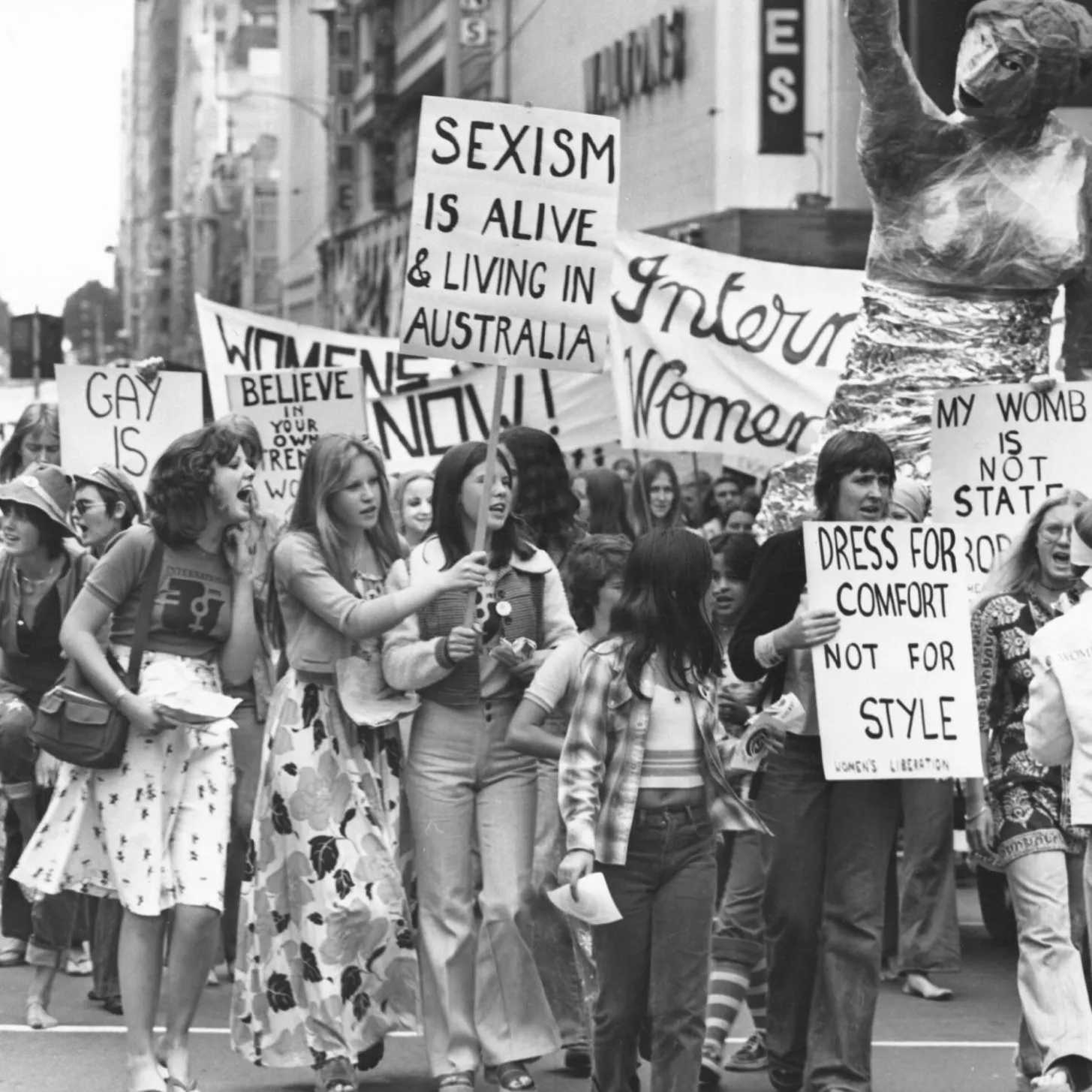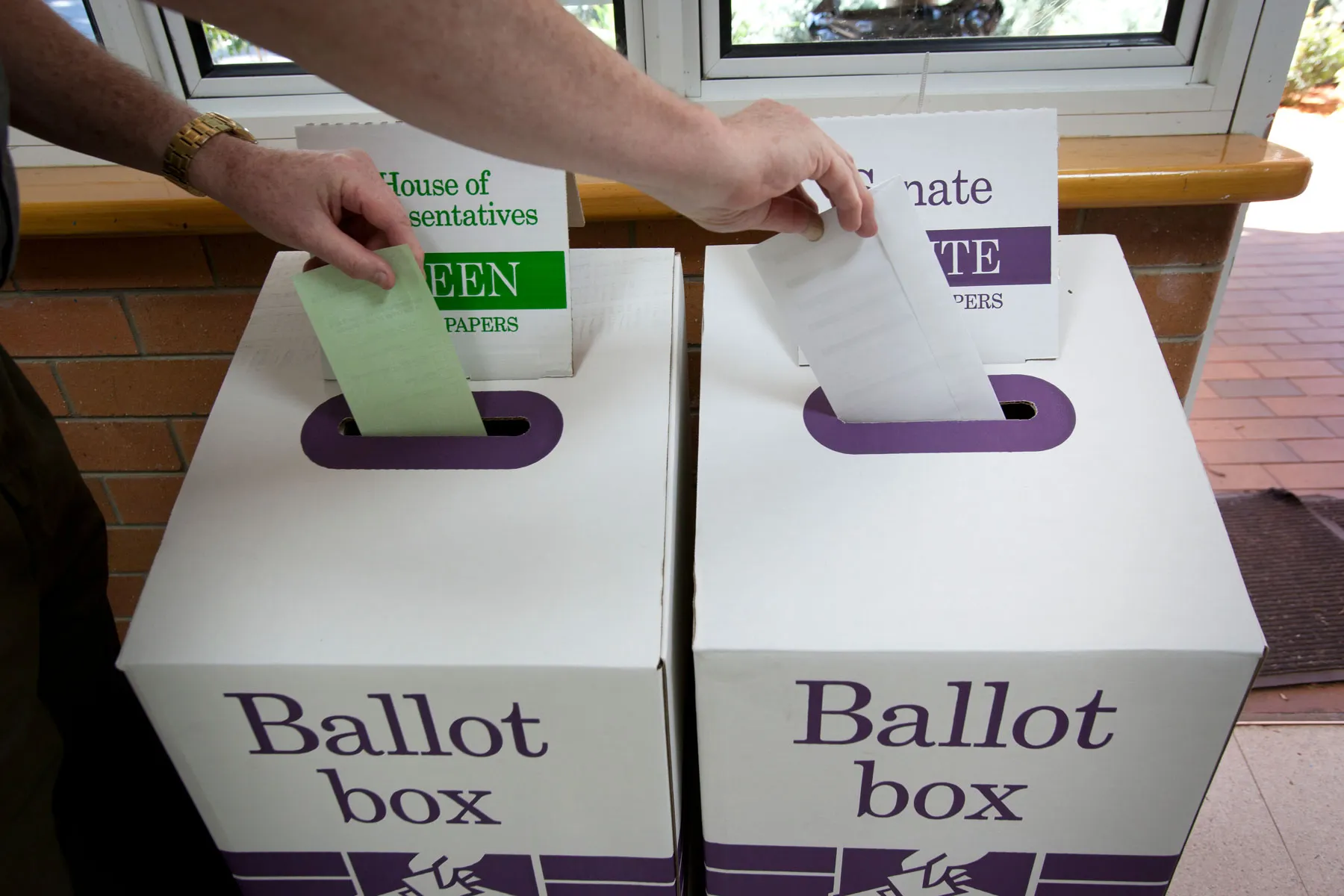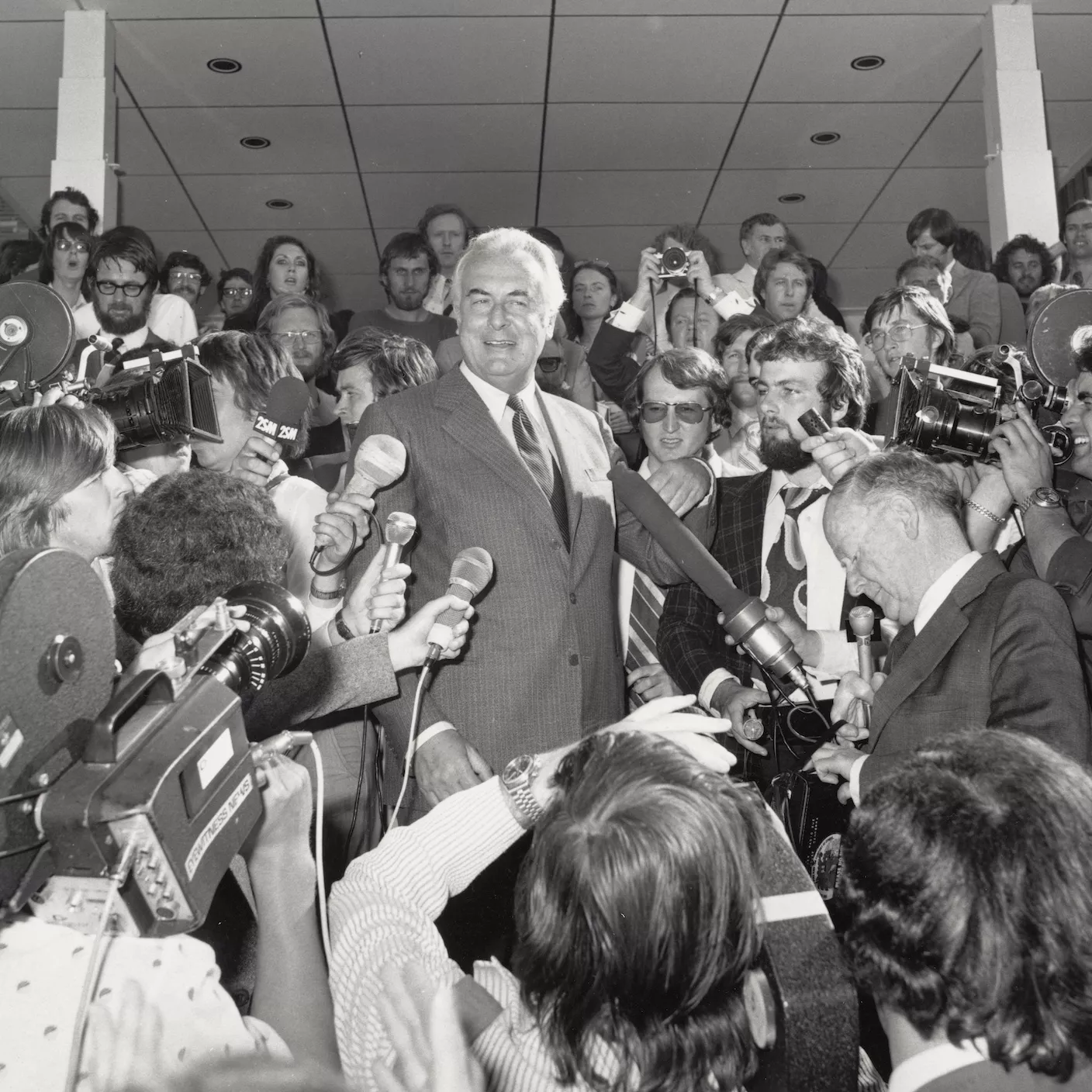MoAD and the Courtyard Cafe are open. Some exhibitions and rooms will be closed from September 2025 for essential building works. Learn more



Lieutenant Colonel Robert Ernest Williams and his wife's invitations to the event of the year.
Read more
Press Gallery photographer Graeme 'Bluey' Thomson's life's work in photographs.
Read more



Maintaining the rage and turning on the lights.
Read more





These Life Gold Passes allowed retired parliamentarians to travel for free.
Read more
Fatherly advice from a future prime minister.
Read more
Beautifully illustrated travel posters were a popular way of attracting potential tourists.
Read more



A chess set with pieces made to look like federal politicians.
Read more

A board game about First Nations history and culture.
Read more
These small but mighty earrings were created for Cathy McGowan's campaign for the Indi electorate.
Read more
Neville Bonner used this to give his stamp of approval during his time in parliament.
Read more
This plaque signifies Dorothy Margaret Tangney becoming Australia's first woman senator.
Read more
The first Australian commemorative coin marked the 1927 opening of Australia's provisional Parliament House.
Read more
The Women's Social and Political Union took extreme actions to advance the cause of women's suffrage.
Read more
Wikileaks' Julian Assange is convicted under the US Espionage Act, his supporters see him as a whistleblower.
Read more
From 1946, a lively bar was provided for ‘non-members’ of parliament at the provisional Parliament House.
Read more
More than an unassuming piece of campaign material, this matchbook has a story to tell.
Read more
This miniature elephant is a tongue-in-cheek souvenir depicting Provisional Parliament House.
Read more
Pocket-sized cylindrical boxes for matches, were popular in Australia and New Zealand in the early 1900s.
Read more
These decorated cufflinks were part of a court dress uniform for the Minister for External Affairs.
Read more
Australia’s first ever President of the Senate likely commissioned this gold and bloodstone signet ring.
Read more
This rare hammered silver coin represents a foundational idea for the history of parliamentary democracy.
Read more





First class travel for the wife of the prime minister.
Read more


A symbol of a substantial change in government policy.
Read more
The 1928 referendum asked Australians to change the way finances were managed by the Commonwealth and states.

The powers and duties of the governor-general explained.

How it works, why it matters and the power of your role in it.

Australians were asked to vote on whether men in National Service could be deployed to fight in World War One.

The start of the election process explained.

Deep dive into stories about Old Parliament House, Australian history and democracy.
The Museum of Australian Democracy acknowledges Australia's First Nations peoples as the Traditional Custodians of Country throughout Australia. We recognise their continuing connection to land, waters and community. We respectfully acknowledge the role that First Nations people continue to play in shaping Australia's democracy. We also acknowledge the Ngunnawal, Ngunawal and Ngambri peoples as the Traditional Custodians of the region in which MoAD is located.
© Copyright 2025 Museum of Australian Democracy at Old Parliament House Privacy Statement
